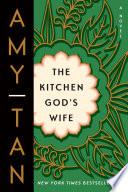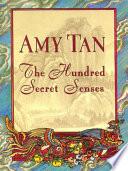Works

The Kitchen God's Wife
Amy Tan
Saving Fish from Drowning
Amy TanFamous Amy Tan Quotes
“That was how dishonesty and betrayal started, not in big lies but in small secrets.”
Source: The Bonesetter's Daughter
American Acheivement interview (1996)
Source: The Joy Luck Club
Context: Reading for me was a refuge. I could escape from everything that was miserable in my life and I could be anyone I wanted to be in a story, through a character. It was almost sinful how much I liked it. That's how I felt about it. If my parents knew how much I loved it, I thought they would take it away from me. I think I was also blessed with a very wild imagination because I can remember, when I was at an age before I could read, that I could imagine things that weren't real and whatever my imagination saw is what I actually saw. Some people would say that was psychosis but I prefer to say it was the beginning of a writer's imagination. If I believed that insects had eyes and mouths and noses and could talk, that's what they did. If I thought I could see devils dancing out of the ground, that's what I saw. If I thought lightning had eyes and would follow me and strike me down, that's what would happen. And I think I needed an outlet for all that imagination, so I found it in books.
“Whenever I'm with my mother, I feel as though I have to spend the whole time avoiding land mines.”
Source: The Kitchen God's Wife (1991), p. 9
Source: The Hundred Secret Senses
Amy Tan Quotes about thinking
Amy Tan Quotes about love
“I love and am loved, fully and freely, nothing expected, more than enough received.”
Source: The Hundred Secret Senses
SALON Interview (1995)
Context: Other Asian-American writers just shudder when they are compared to me; it really denigrates the uniqueness of their own work. I find it happening less here partly because people are more aware now of the flaws of political correctness — that literature has to do something to educate people. I don't see myself, for example, writing about cultural dichotomies, but about human connections. All of us go through angst and identity crises. And even when you write in a specific context, you still tap into that subtext of emotions that we all feel about love and hope, and mothers and obligations and responsibilities.
Amy Tan: Trending quotes
“Writing what you wished was the most dangerous form of wishful thinking.”
Source: The Bonesetter's Daughter
“Chance is the first step you take, luck is what comes afterward.”
Source: The Kitchen God's Wife
Source: The Joy Luck Club (1989), Ch. 7, pg. 130
Amy Tan Quotes
Variant: Everyone must dream. We dream to give ourselves hope. To stop dreaming — well, that’s like saying you can never change your fate. Isn’t that true?
Source: The Hundred Secret Senses (1995)
“Yin people is the term Kwan uses, because "ghosts" is politically incorrect.”
SALON Interview (1995)
Context: I've long thought about how life is influenced by death, how it influences what you believe in and what you look for. Yes, I think I was pushed in a way to write this book by certain spirits — the yin people — in my life. They've always been there, I wouldn't say to help, but to kick me in the ass to write.... Yin people is the term Kwan uses, because "ghosts" is politically incorrect. People have such terrible assumptions about ghosts — you know, phantoms that haunt you, that make you scared, that turn the house upside down. Yin people are not in our living presence but are around, and kind of guide you to insights. Like in Las Vegas when the bells go off, telling you you've hit the jackpot. Yin people ring the bells, saying, "Pay attention." And you say, "Oh, I see now." Yet I'm a fairly skeptical person. I'm educated, I'm reasonably sane, and I know that this subject is fodder for ridicule.... To write the book, I had to put that aside. As with any book. I go through the anxiety, "What will people think of me for writing something like this?" But ultimately, I have to write what I have to write about, including the question of life continuing beyond our ordinary senses.
The Joy Luck Club (1989), Chapter 1, First lines
“My sister Kwan believes she has yin eyes.”
The Hundred Secret Senses (1995)
Context: My sister Kwan believes she has yin eyes. She sees those who have died and now dwell in the World of Yin, ghosts who leave the mists just to visit her kitchen on Balboa Street in San Francisco.
"Libby-ah," she'll say to me. "Guess who I see yesterday, you guess." And I don't have to guess that she's talking about someone dead.
SALON Interview (1995)
Context: I've long thought about how life is influenced by death, how it influences what you believe in and what you look for. Yes, I think I was pushed in a way to write this book by certain spirits — the yin people — in my life. They've always been there, I wouldn't say to help, but to kick me in the ass to write.... Yin people is the term Kwan uses, because "ghosts" is politically incorrect. People have such terrible assumptions about ghosts — you know, phantoms that haunt you, that make you scared, that turn the house upside down. Yin people are not in our living presence but are around, and kind of guide you to insights. Like in Las Vegas when the bells go off, telling you you've hit the jackpot. Yin people ring the bells, saying, "Pay attention." And you say, "Oh, I see now." Yet I'm a fairly skeptical person. I'm educated, I'm reasonably sane, and I know that this subject is fodder for ridicule.... To write the book, I had to put that aside. As with any book. I go through the anxiety, "What will people think of me for writing something like this?" But ultimately, I have to write what I have to write about, including the question of life continuing beyond our ordinary senses.
Source: The Joy Luck Club (1989)
“I hid my deepest feelings so well I forgot where I placed them.”
Source: Saving Fish from Drowning
“You remember only what you want to remember. You know only what your heart allows you to know.”
Source: Saving Fish from Drowning
“Your life is what you see in front of you.
-An-mei”
Source: The Joy Luck Club
“too much happiness always overflowed into tears of sorrow.”
Source: The Hundred Secret Senses
“Fate is shaped half by expectation, half by inattention.”
Source: The Joy Luck Club
Source: The Kitchen God's Wife
“What is the past but what we choose to remember?”
Variant: After all, Bao Bomu says, what is the past but what we choose to remember?
Source: The Bonesetter's Daughter
“A mother is always the beginning. She is how things begin.”
Source: The Bonesetter's Daughter
“I was no longer scared. I could see what was inside me.”
Source: The Joy Luck Club (1989), Ch. 3, pg. 59
“You can have pride in what you do each day, but not arrogance in what you were born with.”
Source: The Bonesetter's Daughter
Source: The Joy Luck Club (1989), Ch. 8, pg. 142
“If I now recognize evil in other people, is it not because I have become evil too?”
Source: The Joy Luck Club
Source: The Hundred Secret Senses
Source: The Joy Luck Club (1989), Ch. 7, pg. 121


